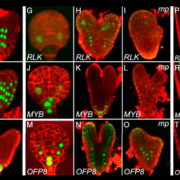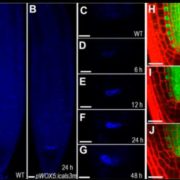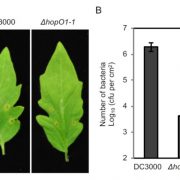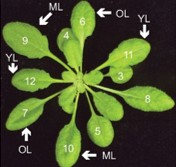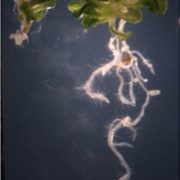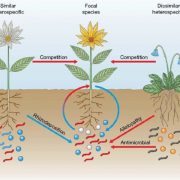Brassica clubroot disease protist pathogen promotes phloem differentiation and expression of SWEET sucrose transporters (Plant Cell)
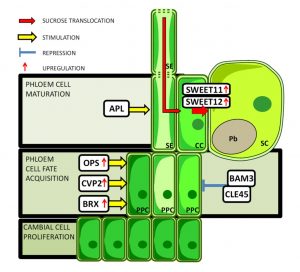 Clubroot is a disease of brassicas (including oilseed crops and Arabidopsis) caused by the protist Plasmodiophora brassicae. The infection is characterized by the formation of swollen tissues called galls that are metabolic sinks in which the pathogen propagates. Walerowski et al. took advantage of Arabidopsis tools to dissect the molecular events initiated by the pathogen. They show that pathogen infection induces genes that promote phloem differentiation including BREVIS RADIX (BRiX), COTYLEDON VASCULAR PATTERN 2 (CVP2) and OCTOPUS (OPS). Additionally, expression of the SWEET sucrose transporters increases. Collectively these changes contribute to increased flow of carbohydrates to the galls. Mutations that inhibit this metabolic hijacking inhibit gall formation and pathogen success. The authors conclude, “This work highlights the importance of precise regulation of sugar partitioning for plant-pathogen interactions and the dependence of P. brassicae’s performance on its capacity to induce a phloem sink at the feeding site.” (Summary by Mary Williams) Plant Cell 10.1105/tpc.18.00283
Clubroot is a disease of brassicas (including oilseed crops and Arabidopsis) caused by the protist Plasmodiophora brassicae. The infection is characterized by the formation of swollen tissues called galls that are metabolic sinks in which the pathogen propagates. Walerowski et al. took advantage of Arabidopsis tools to dissect the molecular events initiated by the pathogen. They show that pathogen infection induces genes that promote phloem differentiation including BREVIS RADIX (BRiX), COTYLEDON VASCULAR PATTERN 2 (CVP2) and OCTOPUS (OPS). Additionally, expression of the SWEET sucrose transporters increases. Collectively these changes contribute to increased flow of carbohydrates to the galls. Mutations that inhibit this metabolic hijacking inhibit gall formation and pathogen success. The authors conclude, “This work highlights the importance of precise regulation of sugar partitioning for plant-pathogen interactions and the dependence of P. brassicae’s performance on its capacity to induce a phloem sink at the feeding site.” (Summary by Mary Williams) Plant Cell 10.1105/tpc.18.00283


